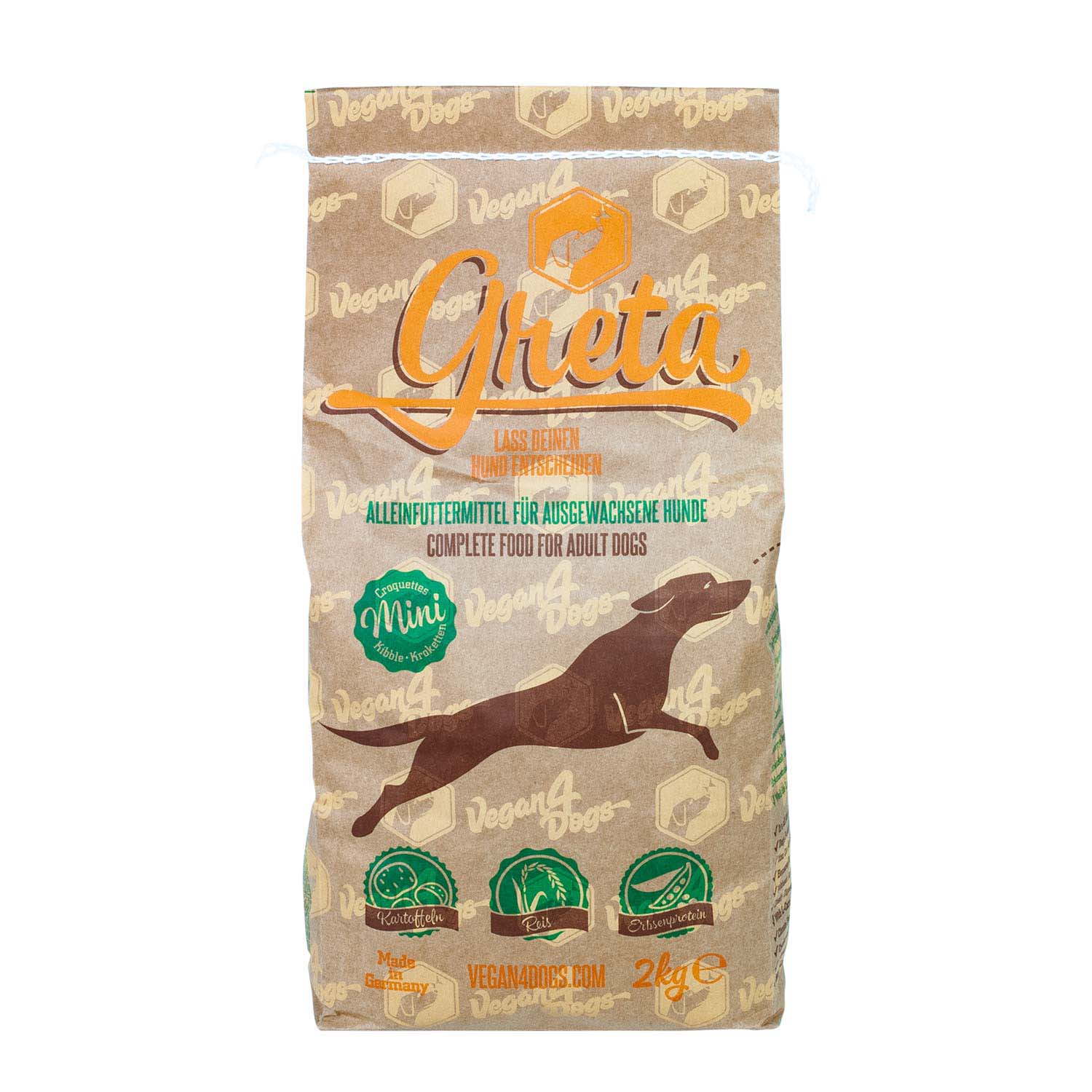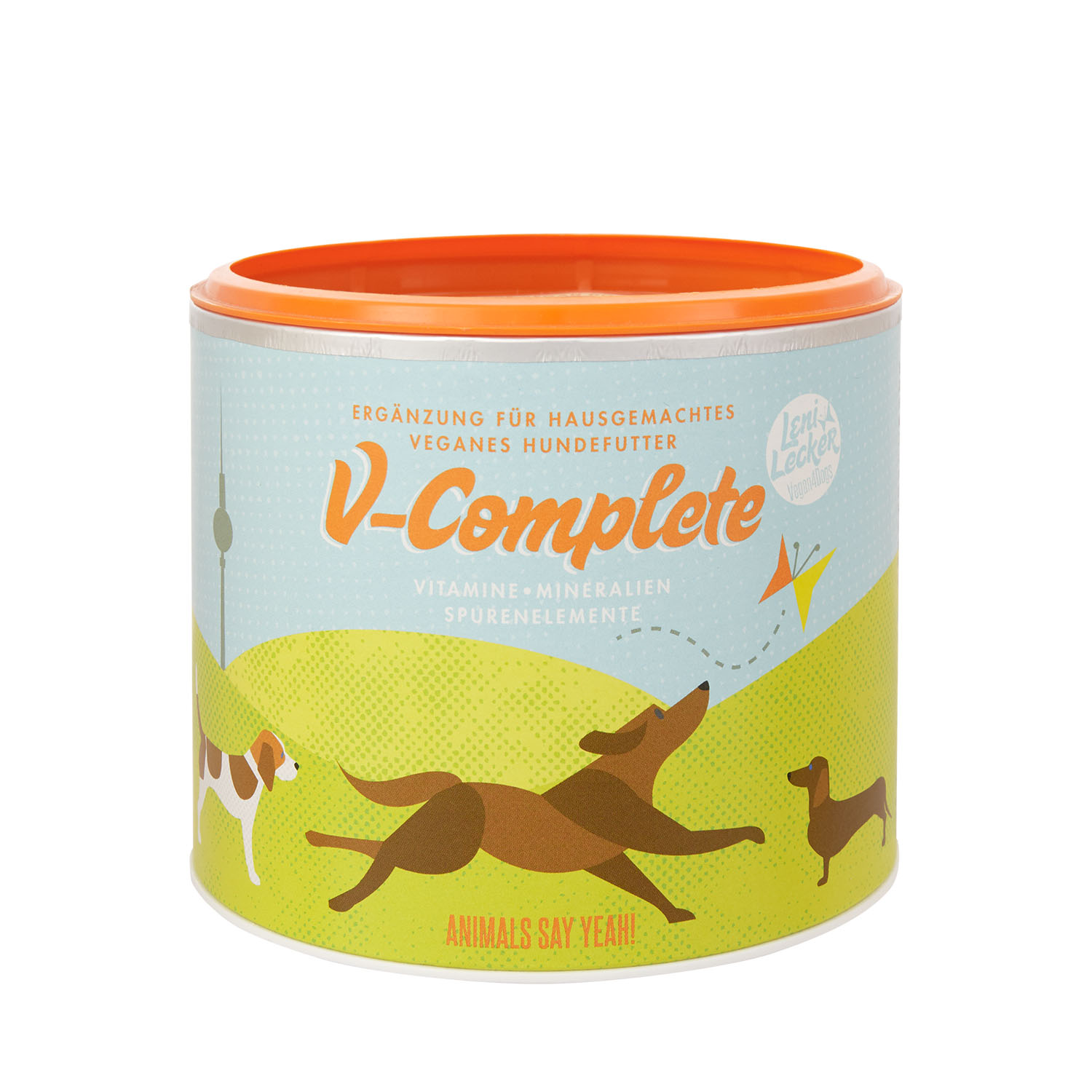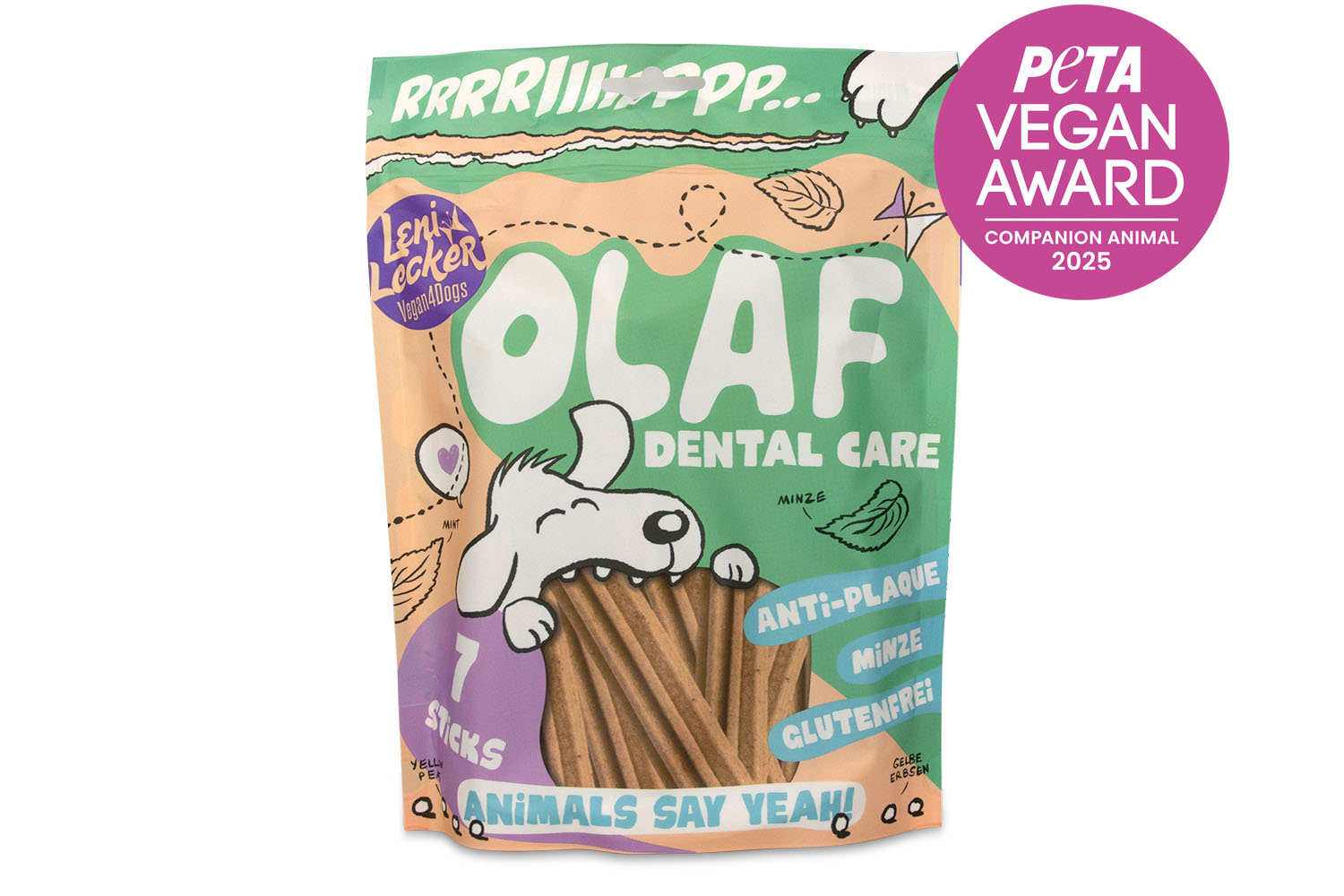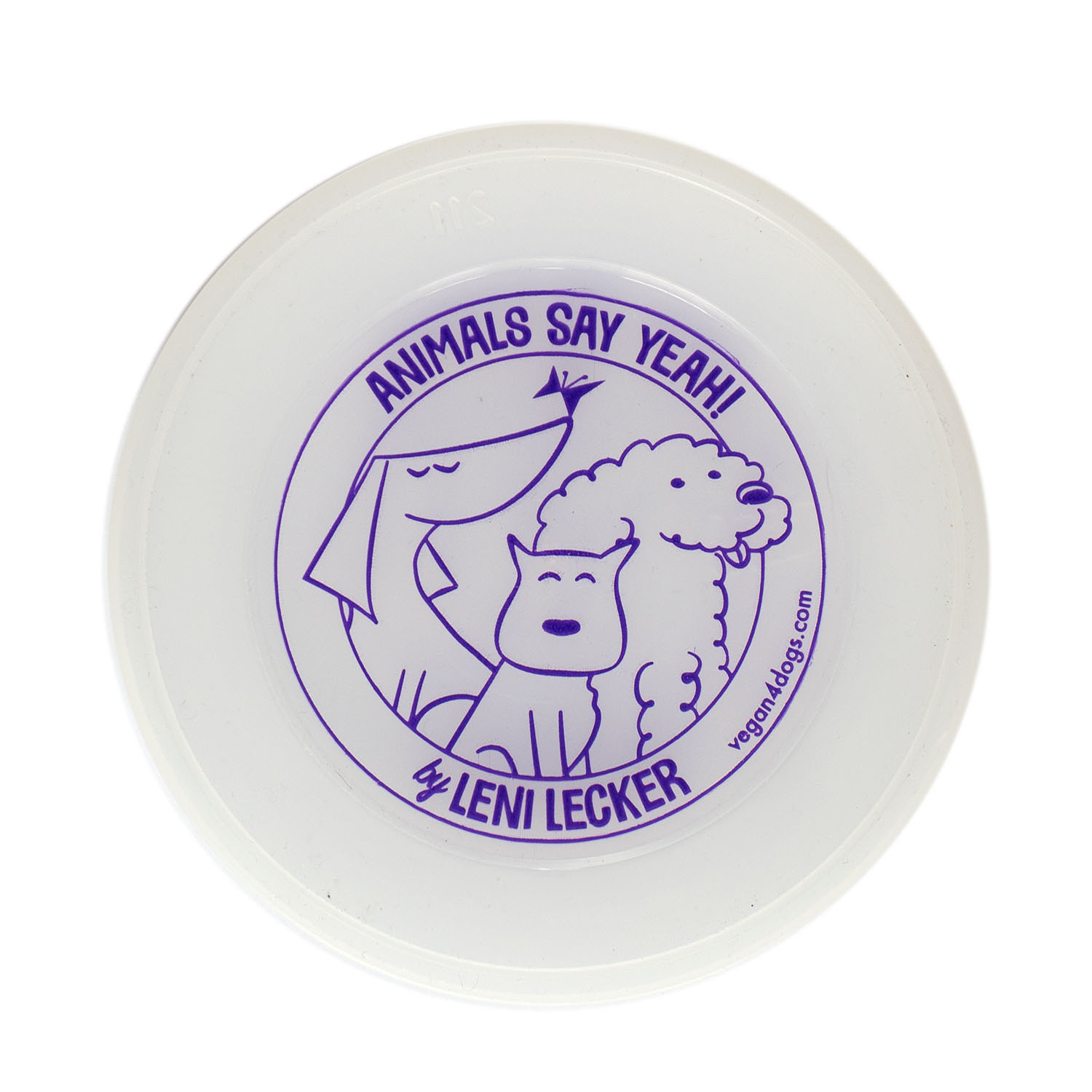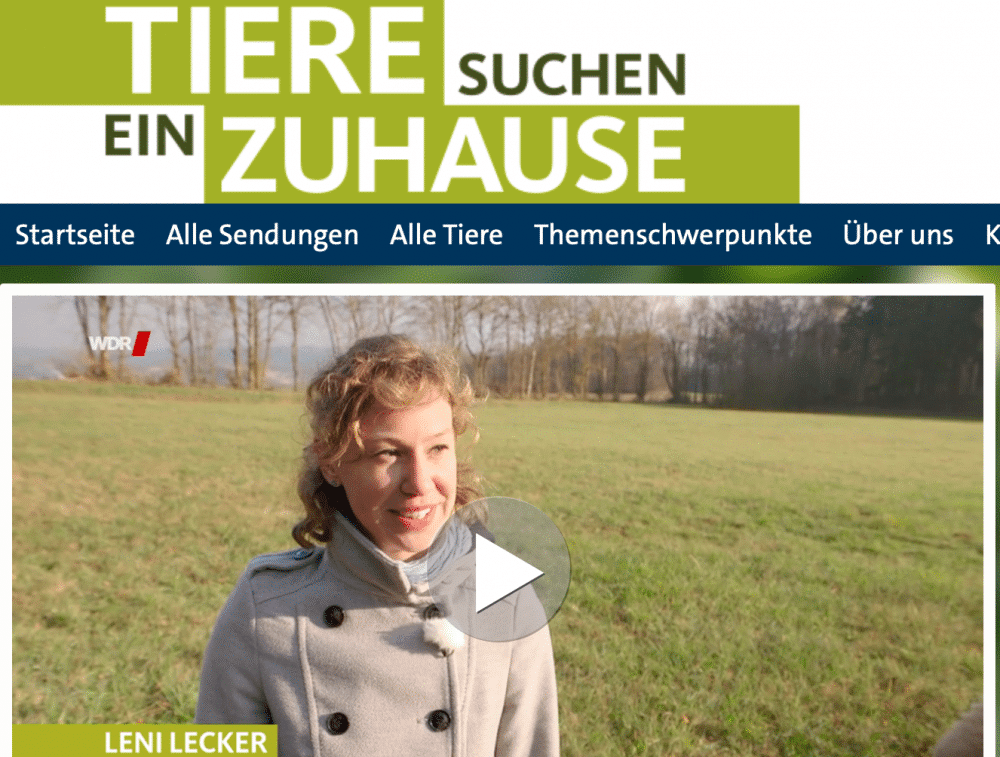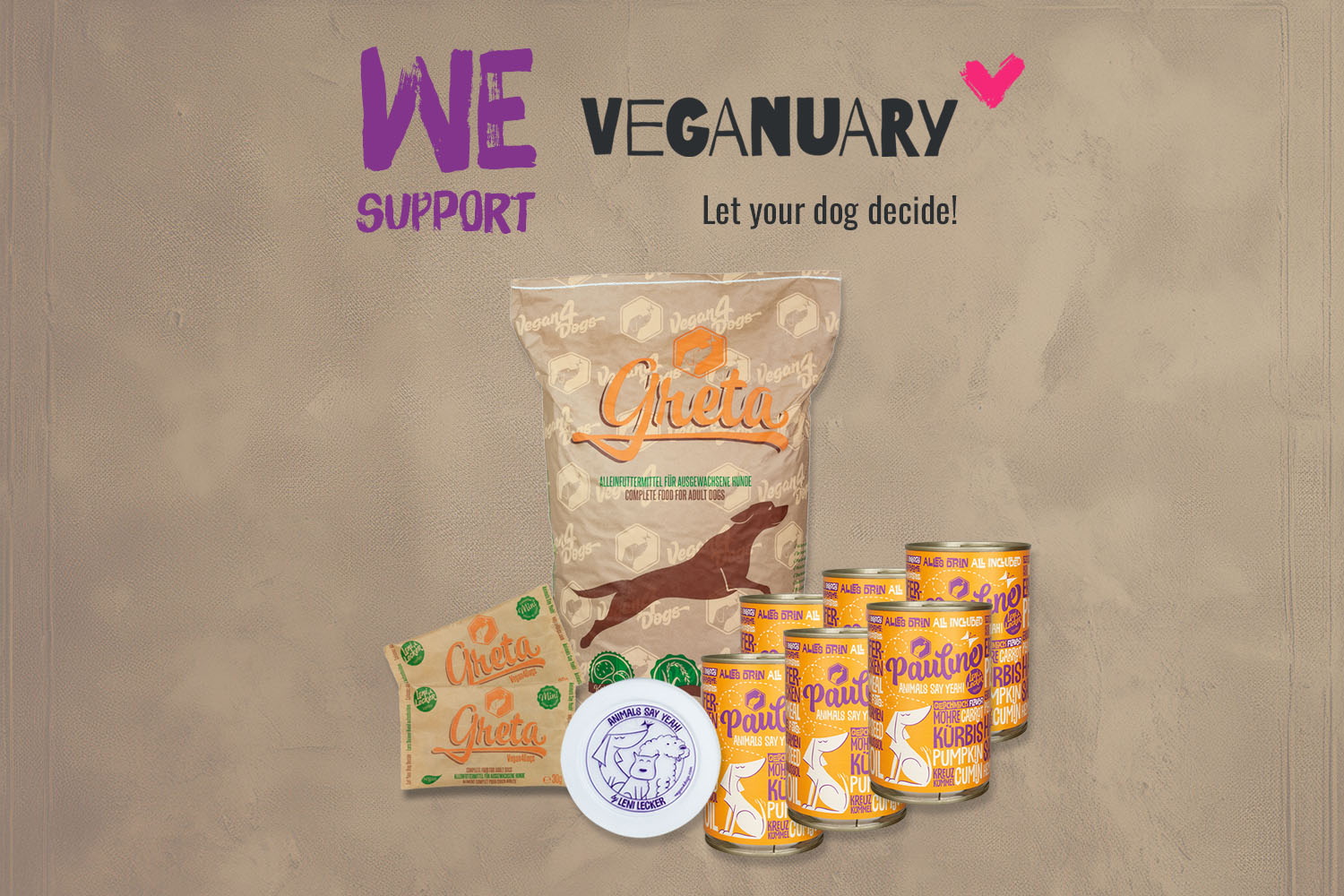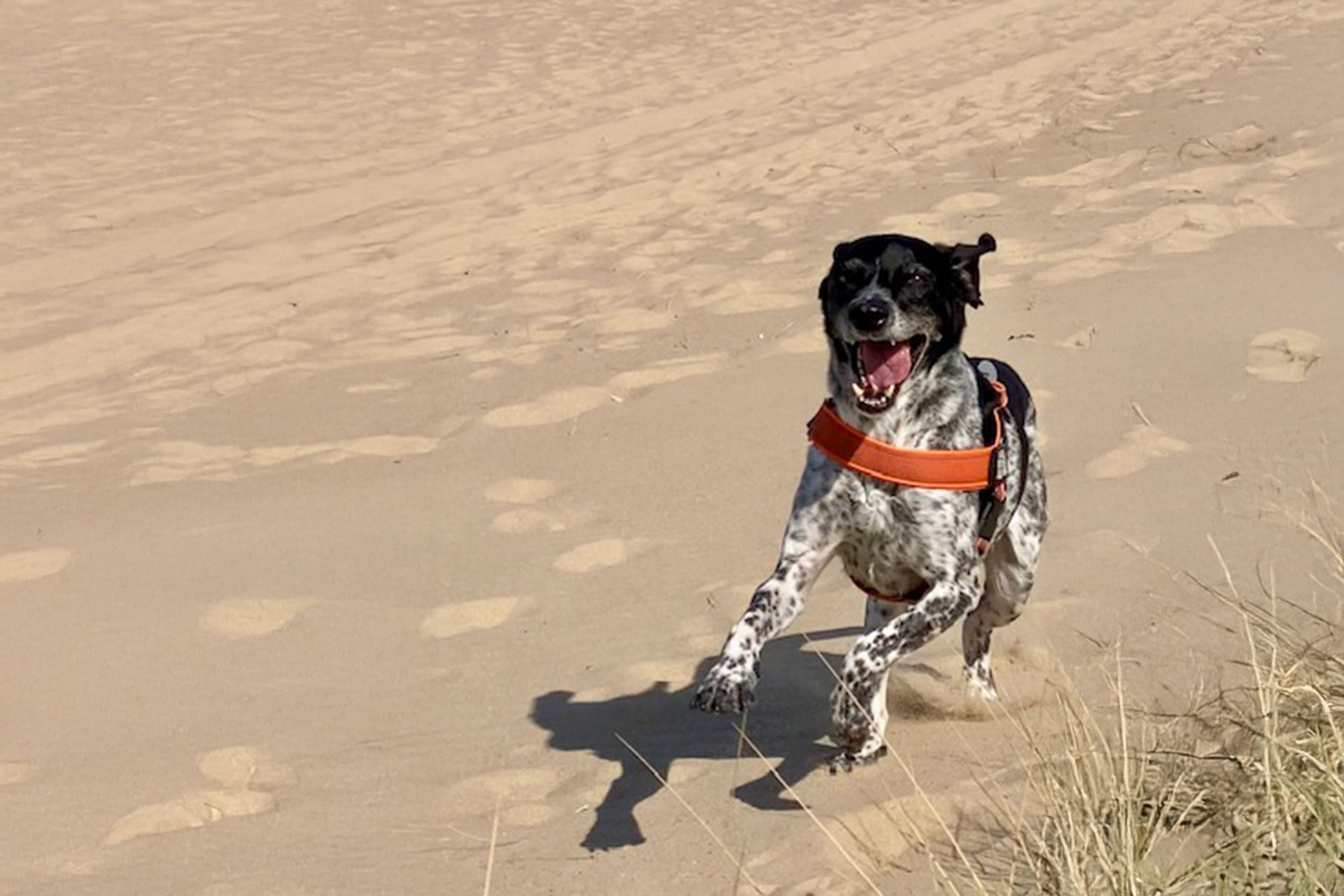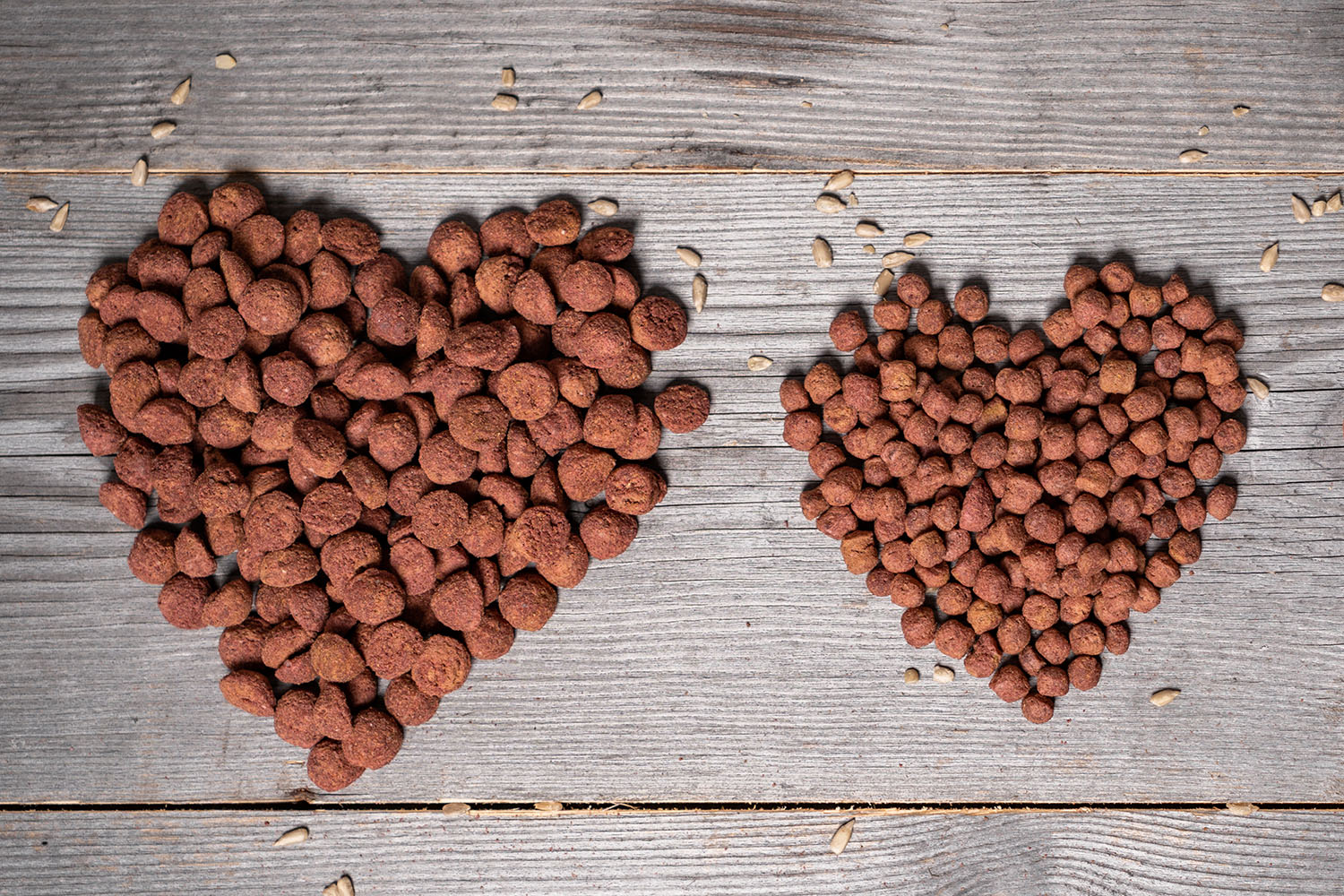
Vegan Puppy Feeding
Today we are taking a look at a topic we regularly get asked a lot of questions about: We are talking about vegan nutrition for dogs during growth. As you know, there are a few things you need to consider when feeding adult dogs a plant-based diet to meet their needs. During their growth the whole thing is a bit more complicated – but not impossible 🙂 The question whether you can feed a young dog a vegan diet, we answer quite clearly with YES! Unfortunately, there are still no scientific studies that confirm this. That’s why many experts (especially those who have little to do with plant-based dog nutrition) are still sceptical. However, we can say from experience that the young four-legged friends grow up healthy and vital if the feeding is designed to meet their needs and adapted to their special requirements.
What are the special needs of puppies?
1. Proteins
For a long time it was believed that an over-supply of protein was harmful for puppies. Studies show that this is not true*. In fact, an adequate supply of protein, including all essential amino acids, is crucial for young dogs to gain mass and weight. The exact calculation of how much of these substances is needed is somewhat complicated. The current weight, the expected final weight and the current age, among other things, are crucial. Some essential amino acids are only found in small quantities in plant-based ingredients. Special attention must be paid to them. Experts will be happy to create a suitable plan for you. If you combine our Greta kibble with some rice protein (and some other additives, see sample recipe), you can perfectly cover your dog’s protein needs.2. Calcium and Phosphorus
In the first year of life, the bones of growing dogs are characterised by considerable growth in length. They consist mainly of calcium and phosphorus, which is why the need for both minerals is much higher than in adult dogs. By comparison, a puppy, 9 weeks old, weighing 5kg and reaching a final weight of 15kg, requires 1,872mg of calcium and 1,194mg of phosphorus per day. An adult dog with an ideal weight of 15kg only needs 992mg calcium and 744mg phosphorus. (Cf. DietCheck Munich) As you can see, the requirement is about twice as high. However, the range can be much larger in individual cases. For example, puppies of large breeds gain many times their body mass within a very short time. For example, a puppy, 10 weeks old, final weight 60kg, needs 6,157mg calcium. When it is fully grown, it only needs about 2,800 mg of calcium per day. (Cf. DietCheckMunich). But not only the absolute calcium and phosphorus levels are relevant. The ratio of the two substances to each other is also particularly important. Ideally, the ratio should be between 1.3:1 and 1.5:1 ( that is always a little more calcium than phosphorus. Both a deficiency and a surplus or an unsuitable ratio of both substances can lead to serious disturbances in skeletal development, which in the worst case are not reversible! Dogs of large breeds are particularly at risk. Therefore, a calculation of the requirement and a suitable recipe is urgently recommended. In puppy rations with our Greta kibble, supplements are usually added to ensure an optimal supply. Depending on the individual situation, this may be dicalcium phosphate or a pure calcium powder.3. Energy
It is not only the bones that perform miracles during the growth phase. The whole body invests a lot of energy in the healthy development of all organs. For this reason, puppies have a comparatively higher energy requirement than adult dogs. Where the energy comes from is not relevant. As long as vegetable ingredients have been well broken down in advance, they provide young dogs with sufficient energy. This means: All dry legumes should be soaked overnight. Then cooked as soft as possible. Depending on the type, this can take between 20 minutes and 2 hours. Pureeing them afterwards ensures optimal digestion of the plant fibres. All types of carbohydrates (noodles, potatoes, rice,…) should be cooked at least 20 minutes longer than we are used to for humans. They should have a mushy consistency. Protein powder and tofu are already well broken down and make excellent ingredients in vegan food rations.Important to Know:
If young dogs grow too fast, this has a negative effect on their bones and joints. Long-term consequences are not uncommon. Moderate growth is therefore preferable to rapid growth. Special growth curves can be prepared by specialised veterinarians. In addition to the three main focuses mentioned, it should be noted that there is also an increased need for various other minerals, trace elements, vitamins and fatty acids. Since the subject is so complex, vegan puppy nutrition should always be accompanied by an expert. He*She will be happy to create recipes based on our Greta kibble or homemade recipes with V-Complete to meet your puppy’s needs. They should be adjusted approx. every 3 months until your four-legged friend is fully grown.Recipe example
Puppy, 9 weeks old, current weight 5kg, adult weight 15kg:Greta 220g
Rice protein (80% protein concentration) 10g
Dicalcium phosphate 3g
Zinc-copper product 0.8mg copper/7.5mg zinc
The supplements (protein powder, calcium/phosphorus, zinc/copper) can be added to 20g of coconut yoghurt or 40g of vegetable puree.
As you can see, puppies have specific needs. It is very well possible to obtain a healthy, balanced growth with vegan feeding. Specialist vets such as Lisa Walther from DietPet or Uwe Romberger from veganvet will be happy to help you create recipes that meet your needs.


